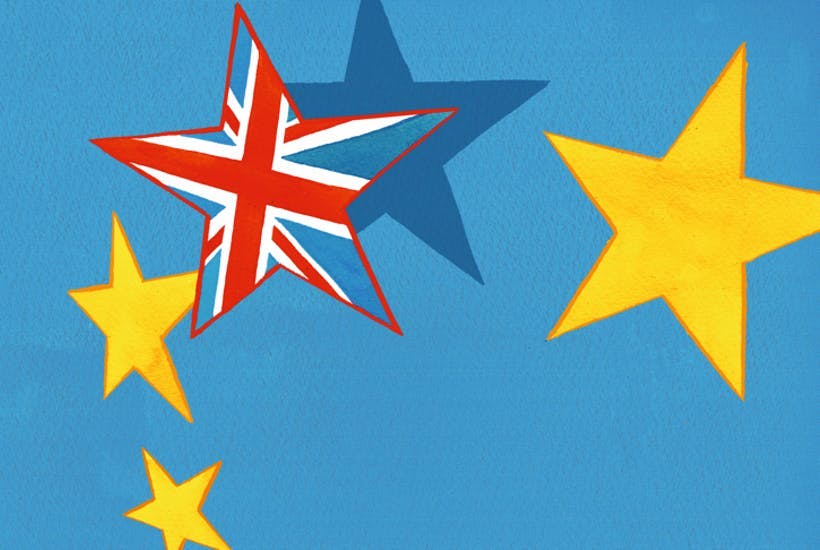As the possibility of no deal gets closer, the hyperbole is getting more hyperbolic. But catastrophe metaphors like crashing out, falling off a cliff edge, and burning in hell ignore the less than exciting fact that leaving the EU without a deal leaves us, at most, with transitional problems that can be managed.
Despite what Donald Tusk says, people who campaigned to leave the EU thought carefully about how best to overcome any temporary problems the absence of a free trade arrangement might bring. Most notably Business For Britain published a massive 1,000-page analysis called Change or Go, How Britain would gain influence and prosper outside an unreformed EU as early as 2016.
A year later Civitas published an updated analysis on how to overcome one of the potentially most serious transitional problems: that some industries would face very high tariffs. There is a long version of the analysis here and a summary here. It found that British industries could be fully protected from the impact of potential tariff costs if the UK left without a deal. A range of measures could be taken – well within World Trade Organisation rules – that would provide support, roughly equal in value to the tariffs that would be imposed on exporters to the EU. Because the UK would collect even larger sums in tariffs from EU companies exporting to the UK, we could compensate our own companies hit by tariffs – with no net cost to the taxpayer.
Another Civitas study in 2015 estimated that Britain would collect £12.9 billion in tariffs on EU imports and that British firms would incur total costs of £5.2 billion on their exports to the EU. Since then, the Department for International Trade has worked out the average costs for the years 2015-2017. If Most Favoured Nation tariffs were applied, UK exports to the EU would face tariffs of around £6 billion per year and EU exports to the UK would face tariffs of around £14 billion per year.
The main problem is that EU tariffs would vary in their impact. Some sectors are hardly affected at all, but agricultural products, including food and beverages, would face high tariffs. Some non-agricultural products would also face tariff costs in excess of 5 per cent of the value of exports. The most seriously affected non-agricultural products, such as motor vehicles, many textiles, some chemicals, plastics, fishing, ceramics and aluminium, would face total tariff costs of £2.3 billion.
WTO rules prohibit direct export subsidies, but the study shows how horizontal, economy-wide policies could be implemented to the advantage of those industries that will be hit by EU tariffs.
There could be a £2.9 billion research and development expenditure credit for all businesses, but with an enhanced allowance for producers of ‘agricultural products’ which would be permitted under special WTO rules for agriculture. Of the total cost, 73 per cent would go to the industries most affected by tariffs.
There could also be a new £3.8 billion regional policy for areas where income per capita is under 85 per cent of the national average and/or unemployment is more than 110 per cent of the national average. In this case over 68 per cent of the funds would reach industries impacted by EU tariffs. And potential Labour rebels would welcome the fact that assistance would be offered to areas containing 65 per cent of the UK population, whereas EU rules currently limit the UK to assisting areas covering only 27 per cent of the population.
Finally there could be a Transitional Assistance Programme that would make small, discretionary grants to any UK business affected by Brexit, at an estimated annual cost of £869 million. To comply with WTO rules, the payments would not exceed one per cent of the value of exports and would be time-limited. The programme would not need to be restricted to exporters, but about 80 per cent of the money would go to businesses hit by tariffs.
Taken together, these measures would benefit industries affected by around £5 billion a year, compensating them for the newly-imposed costs of any tariffs.
The total cost of the package to the Treasury, including ‘leakage’ to non-affected industries, would be £7.6 billion – which would be fully covered by the £12.9 billion it would collect on EU imports into the UK.
Even if we were not leaving the EU, these measures can be justified in their own right. By common consent, we urgently need to promote research and development to raise productivity and wages. And regional aid is justified to overcome the entrenched economic stagnation that has affected former manufacturing and mining areas of the UK.
There is no cliff edge on 29 March, but there are some major transitional problems that are manageable, as long as the Government develops a bit of backbone.
David G. Green is Director of Civitas.






Comments